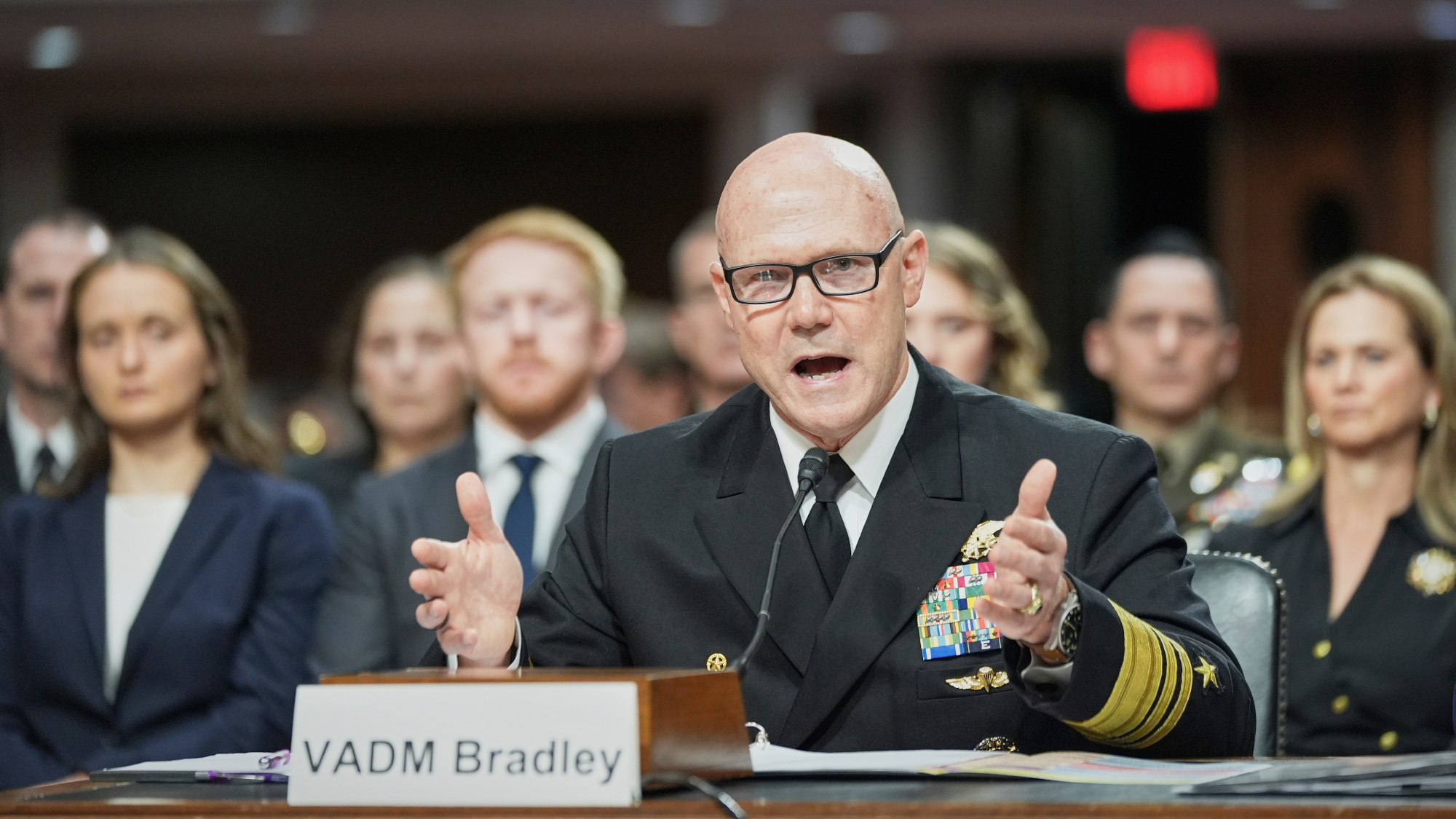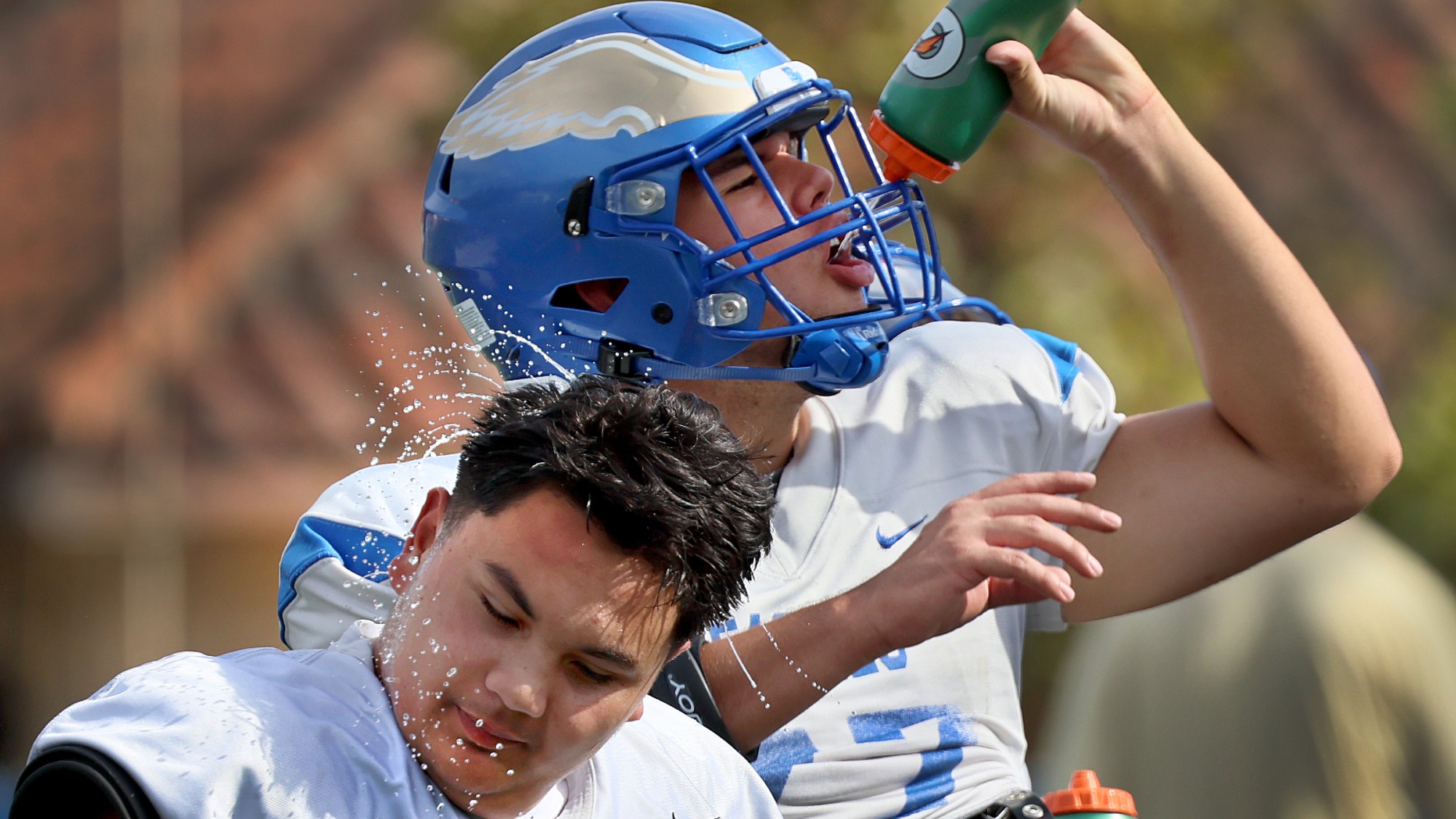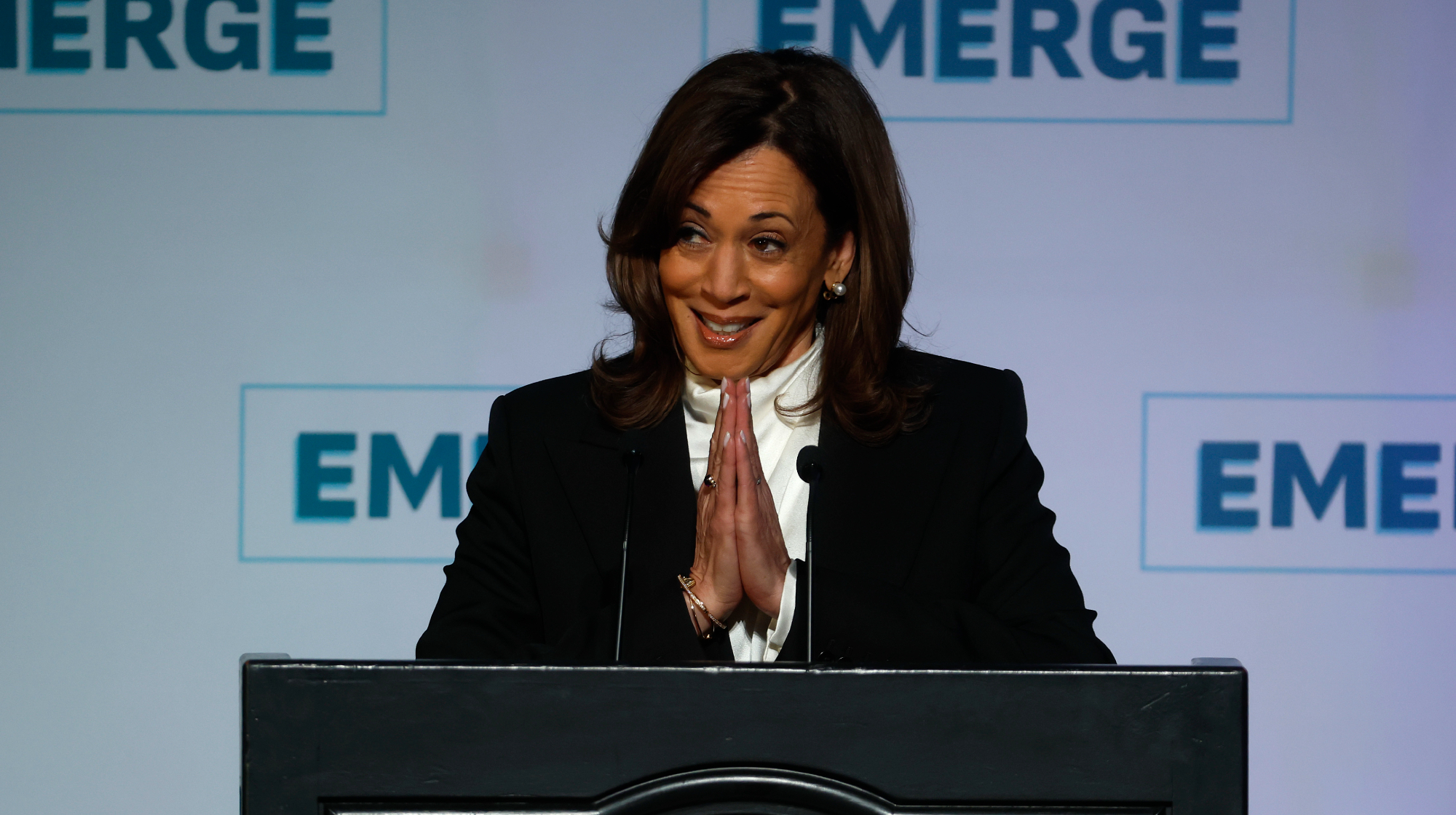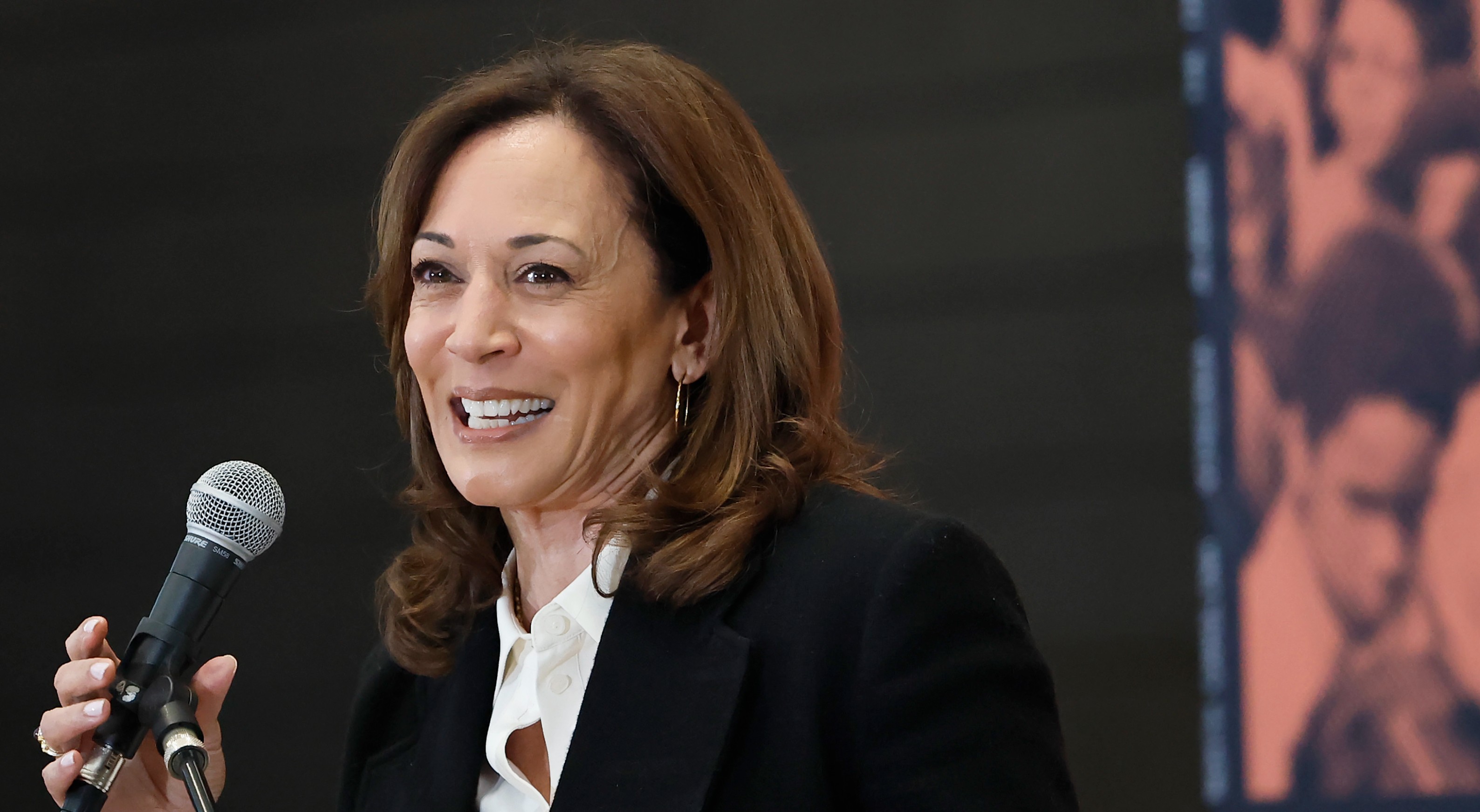Can Elizabeth Warren win over black voters?
Kamala Harris' campaign launch on MLK Day puts front and center a key question for Elizabeth Warren, or any Democratic hopeful: How will they win African-American support?


With Sen. Kamala Harris' (D-Calif.) official entry into the 2020 presidential race, the Democratic field is really starting to take shape.
Right now, of the candidates we know will be running for the liberal center, Harris is probably the best-positioned. She has more star power than Sens. Cory Booker (D-N.J.) or Kirsten Gillibrand (D-N.Y.), more experience and a stronger grasp of policy than former Texas Rep. Beto O'Rourke or former Secretary of Housing and Urban Development Julian Castro, and she's a dynamic new face, unlike Joe Biden or Michael Bloomberg.
At least one candidate is certain to pursue a different path to the nomination, arguing for a more thorough ideological retooling of the Democratic Party along economically populist lines: Elizabeth Warren. I've argued before that the Massachusetts senator is the best candidate to carry that banner, which she has already been waving in Iowa and New Hampshire, as well as the best choice to lead the party. If she consolidates her position on the left, it wouldn't be shocking if, down the road, what is now a wide-open field narrowed to become a contest between Warren and Harris. But Harris' announcement on Martin Luther King Day puts front and center a key question for any Democratic hopeful, including Warren: How will he or she win African-American support? After all, one is unlikely to win the nomination without it.
The Week
Escape your echo chamber. Get the facts behind the news, plus analysis from multiple perspectives.

Sign up for The Week's Free Newsletters
From our morning news briefing to a weekly Good News Newsletter, get the best of The Week delivered directly to your inbox.
From our morning news briefing to a weekly Good News Newsletter, get the best of The Week delivered directly to your inbox.
If you look at the last three decades of Democratic politics, you can plausibly conclude that there is, in fact, no more important constituency to court than the black vote. In 1992, Bill Clinton's campaign was revived by a second-place showing in very white New Hampshire, but what propelled him to the front of the pack was a series of decisive victories across the South and border states for which the African-American vote was crucial. The loyalty of black voters was also vital later in his presidency, providing his most solid base of popular support during impeachment proceedings. Toni Morrison even called him the first black president.
But cultural affinity is far from necessary to win black support. In 2004, John Kerry, a wind-surfing Harvard man, was able to outdistance Howard Dean and John Edwards in part because of solid support from black voters, which was essential to victory in states from Michigan to Georgia.
African-American voters have been able to play this decisive role because of a high degree of institutional loyalty to the party. Black leaders, and black voters, have tended to gravitate toward mainstream liberal nominees who have cultivated strong relationships with elected officials, key unions, and other grass-roots supporters of the Democratic Party.
The two biggest exceptions were when credible African-American candidates were on the ballot. In 1988, Reverend Jesse Jackson mounted a broad, left-wing insurgent campaign, and was able to draw a large proportion of black voters to his standard — enough to win Alabama, Georgia, Louisiana, and Mississippi, as well as Virginia. But he was unable to expand sufficiently beyond his left-wing base to win the nomination.
A free daily email with the biggest news stories of the day – and the best features from TheWeek.com
Barack Obama's candidacy followed a very different path. Obama could easily have been a mostly elite phenomenon, a "wine-track" candidate of high-minded centrist reform like Bill Bradley or Gary Hart who excites interest but doesn't win. While he had certainly attracted attention from African-American voters from the beginning of his campaign, he drew limited black support until after he won the Iowa caucuses — a decisive victory in an overwhelmingly white state. Once he had demonstrated his electability, Obama was able to attract greater institutional support from party leaders, and the overwhelming majority of votes from African Americans.
The tenor of Harris' candidacy to date suggests that her goal is to follow in Obama's footsteps, albeit in a manner updated for the Trump era. She will seek to unite moderate voters appalled by Trump's corruption and incompetence with progressives excited to support an African-American (and South Asian-American) woman. She will woo business leaders looking for stability, but also liberal activists looking for a champion to protect reproductive rights and the most economically-vulnerable citizens.
Can Warren, or another left-wing populist candidate, compete with that pitch? It depends, to a considerable extent, on the degree to which she can win over African-American voters on the basis of her economic populism.
That's something Sen. Bernie Sanders (I-Vt.) had difficulty doing in the 2016 presidential race — particularly with older African-Americans who are the most reliable voters. He was hobbled by weak institutional ties to the party, which is a serious liability. Warren doesn't have that problem, but she may still have difficulty convincing black voters that they should take the risk on advocating radical change, particularly if she has to run an underdog campaign against a candidate consolidating institutional support. Contra Trump's 2016 campaign taunt, many African-American voters may think they have too much to lose to take that kind of risk.
On the other hand, Warren may also have another problem. Jamelle Bouie, in his last piece for Slate before decamping for The New York Times, suggested that white candidates in the contemporary Democratic Party face a bit of a catch-22. If they don't engage in a dramatic way on issues of particular importance to black voters, they have trouble exciting those voters' enthusiasm. But if they do focus on those issues, they risk being defined by them in the minds of white voters who harbor racial resentments, and push those voters toward the Republicans. Ironically, a white Democrat could be more of a lightning rod for such resentments than a black candidate who can run a less racially-oriented campaign.
Warren's positions on issues like criminal justice reform, for example, should make Black Lives Matter activists comfortable — arguably, more comfortable than Kamala Harris' record as a prosecutor. But Warren isn't running primarily on those issues; she's running on economic ones. And her electoral performance reflects that emphasis. If you look at Warren's last Senate campaign, as Nathaniel Rakich recently did for FiveThirtyEight, and compare her performance to Hillary Clinton's in 2016, she looks stronger in "Obama-Trump" regions of the state — relatively downscale white towns in western Massachusetts — and relatively less-well in the "Romney-Clinton" elite suburbs. Those elite suburbs provided Democrats with a lot of wins in congress in 2018, but for winning the electoral college, the former matter a lot more.
And what about majority-minority areas? Warren's performance there is equivocal: no worse than Clinton's, but also no better. And that could be a problem: Clinton lost states like Michigan partly because of the working-class white voters who switched from Obama to Trump, but partly because of non-white voters who didn't show up.
If she wants to win the nomination, Warren is going to have to convince African-American and other non-white voters that her emphasis is the right one, both for their interests and for winning the general election. And she's going to have to do it running against a charismatic candidate who can make the case that she understands those interests inherently. That won't be easy. But if she can do it, she'll have gone a long way toward demonstrating the level of political talent that presidents are made of.
Noah Millman is a screenwriter and filmmaker, a political columnist and a critic. From 2012 through 2017 he was a senior editor and featured blogger at The American Conservative. His work has also appeared in The New York Times Book Review, Politico, USA Today, The New Republic, The Weekly Standard, Foreign Policy, Modern Age, First Things, and the Jewish Review of Books, among other publications. Noah lives in Brooklyn with his wife and son.
-
 Who will be the next Fed chair?
Who will be the next Fed chair?Today's Big Question Kevin Hassett appears to be Trump pick
-
 Appeals court disqualifies US Attorney Alina Habba
Appeals court disqualifies US Attorney Alina HabbaSpeed Read The former personal attorney to President Donald Trump has been unlawfully serving as US attorney for New Jersey, the ruling says
-
 White House says admiral ordered potential war crime
White House says admiral ordered potential war crimeSpeed Read The Trump administration claims Navy Vice Adm. Frank ‘Mitch’ Bradley ordered a follow-up strike on an alleged drug-smuggling boat, not Pete Hegseth
-
 Has Zohran Mamdani shown the Democrats how to win again?
Has Zohran Mamdani shown the Democrats how to win again?Today’s Big Question New York City mayoral election touted as victory for left-wing populists but moderate centrist wins elsewhere present more complex path for Democratic Party
-
 Millions turn out for anti-Trump ‘No Kings’ rallies
Millions turn out for anti-Trump ‘No Kings’ ralliesSpeed Read An estimated 7 million people participated, 2 million more than at the first ‘No Kings’ protest in June
-
 Democrats: Harris and Biden’s blame game
Democrats: Harris and Biden’s blame gameFeature Kamala Harris’ new memoir reveals frustrations over Biden’s reelection bid and her time as vice president
-
 ‘We must empower young athletes with the knowledge to stay safe’
‘We must empower young athletes with the knowledge to stay safe’Instant Opinion Opinion, comment and editorials of the day
-
 Harris rules out run for California governor
Harris rules out run for California governorSpeed Read The 2024 Democratic presidential nominee ended months of speculation about her plans for the contest
-
 Ghislaine Maxwell: angling for a Trump pardon
Ghislaine Maxwell: angling for a Trump pardonTalking Point Convicted sex trafficker's testimony could shed new light on president's links to Jeffrey Epstein
-
 The last words and final moments of 40 presidents
The last words and final moments of 40 presidentsThe Explainer Some are eloquent quotes worthy of the holders of the highest office in the nation, and others... aren't
-
 What's Kamala Harris' California future?
What's Kamala Harris' California future?Today's Big Question She could run for governor. Will Democrats want her?
